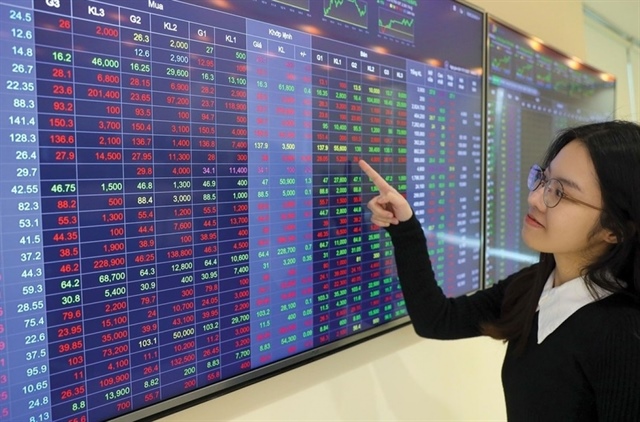MSCI upgrade not coming until 2020
MSCI upgrade not coming until 2020
Vietnam could be classified as an emerging market in 2020 if its free-float rate increases and the market infrastructure becomes better at accommodating foreigners, according to the provider of stock market indexes and portfolio analytics MSCI.

A 2020 vision
For the past few years, Vietnam’s possible inclusion in the MSCI Emerging Markets Index has been a heated topic, attracting discussion from various market participants. As the stock market grows in and liquidity, there are high hopes that Vietnam will soon graduate from its current status as a frontier market. However, the long wait continues as MSCI’s latest review in June once again excluded the country from its list of potential upgrades.
At last week’s investment seminar held by Saigon Securities Incorporation in Ho Chi Minh City, MSCI explained this decision in detail. Head of ASEAN Index Coverage at MSCI Valentin Laiseca pointed out that out of the 14 stocks currently listed in the MSCI Vietnam Index, 13 have already helped Vietnam meet the capitalisation requirement of $1.375 trillion for an emerging market.
Liquidity is also doing quite well. MSCI’s methodologies show that the 12-month liquidity level for Vietnam is already 15 per cent higher than the emerging market threshold. Frequency of trading, which is the proportion of trading days where a stock trades at least once during the day, has also surpassed 80 per cent.
The main problem, according to Laiseca, is the amount of free-floating shares in Vietnam. Specifically, the number of Vietnamese shares available to external investors only makes up 21 per cent of the entire market. Only four stocks in the MSCI Vietnam Index meet the free-float requirement of $687 million.
“Four stocks are too close to our minimum requirement, and this can be a potential issue. We need more time to confirm that the free-float level in Vietnam is irrevocable, which means that in the future, Vietnamese companies won’t suddenly slash the number of shares available to outside investors,” said Laiseca.
Other issues that the MSCI representative highlighted include the lack of information in English, as well as not having an offshore currency market for VND. The market classifier is also concerned that a commercial lender in Vietnam acts as the settlement agent for securities trading, not the central bank.
MSCI’s Laiseca said that his company is closely monitoring new regulations in Vietnam. If the country gets placed under review in the June 2018 cycle, MSCI will then seek input from international investors for at least a year before implementing the decision.
“This means Vietnam can become an emerging market in 2020 at the earliest. Sometimes it may take a few years of gathering feedback from investors before we can officially upgrade a country. For example, Qatar was placed under review in 2010 but only got classified as an emerging market in 2014, as we wanted to see that market improvements there were irreversible,” Laiseca said.
Bolder actions already in store
In response to MSCI’s explanation, Tran Anh Dao, deputy CEO of the Ho Chi Minh City Stock Exchange (HoSE), said that Vietnam has already made great strides in the past year. For example, liquidity on the HoSE has gone up by 43 per cent compared to the end of 2016, and the daily trading volume has reached $180 billion.
The stock exchange has also welcomed 27 new companies this year, including major firms such as Vietjet, VPBank, and the upcoming Vincom Retail. According to Dao, 17 firms on the HOSE have already scrapped their foreign ownership limit, including three with over 60 per cent of shares owned by overseas investors.
“About 20 out of the 30 largest companies on the HoSE have pledged to disclose timely information in English. The number of new accounts opened by foreigners has increased 17 per cent this year, and 40 per cent of institutional accounts remain active,” said Dao.
Aside from a new product called covered warrants, the HoSE is also learning from the Stock Exchange of Thailand to roll out non-voting depository receipts, which allow foreigners to invest in firms with a strict foreign ownership cap.
Keith Pogson, partner at Ernst and Young Hong Kong, stressed that it all starts with the companies themselves.
“Business owners need to show that they are transparent and willing to co-operate with foreign investors. A diverse list of shareholders is also a good sign – investors often worry when they see a firm with a single majority shareholder, which is often the case in Vietnam and other developing markets,” he said.
The experts highlighted that most of the concerns pointed out by MSCI about Vietnam’s upgrade are technical and can be addressed with new regulations. The biggest issue, however, is the willingness of Vietnamese businesses to welcome foreign investment. According to Pogson, this openness will form the biggest impression about Vietnam in investors’ eyes, besides the official market status by MSCI.


























